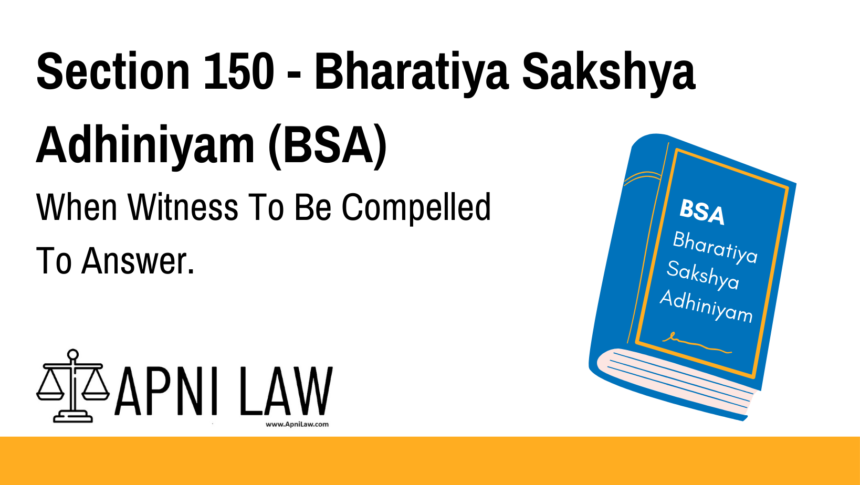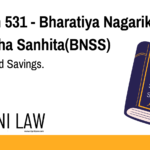Code: Section 150 – Bharatiya Sakshya Adhiniyam (BSA)
150.
If a question relates to a matter relevant to the suit or proceeding, the provisions of Section 137 shall apply thereto.
Explanation of Section 150 BSA
Section 150 of the Bharatiya Sakshya Adhiniyam (BSA) ensures that a witness answers questions that are relevant to the case. If the question is related to the suit or legal proceeding, the provisions of Section 137 will apply. This ensures that a witness can be compelled to provide relevant testimony, which is essential for the case.
Illustration
Example 1: Answering Relevant Questions in a Civil Case
A witness is asked a question in a civil suit about a contract. Since the question is relevant to the case, the witness must answer. Section 150 applies here, compelling the witness to respond, and the rules in Section 137 will ensure compliance.
Example 2: Criminal Case Testimony
In a criminal trial, a witness is asked about an event they directly observed. The Court finds the question relevant to the case. Under Section 150, the witness is required to answer, following the guidelines in Section 137.
Common Questions and Answers on Section 150 BSA
1. Why is Section 150 important in a legal proceeding?
- Answer: Section 150 ensures that a witness provides answers to questions that are crucial for the case. It helps the court gather necessary facts to make a fair judgment.
2. Does Section 150 allow any exceptions for not answering questions?
- Answer: Section 150 does not provide exceptions. However, a witness may be excused under the conditions outlined in Section 137, such as for self-incrimination or privileged information.
3. Can a witness refuse to answer under Section 150?
- Answer: No, a witness cannot refuse to answer a relevant question unless legally excused under other provisions of the law, like Section 137.
Conclusion
Section 150 of the Bharatiya Sakshya Adhiniyam (BSA) ensures that witnesses provide essential answers during a case. The application of Section 137 guarantees that relevant questions are answered unless a legal excuse exists.








